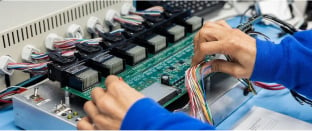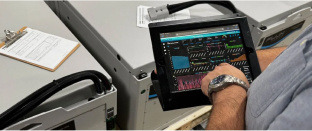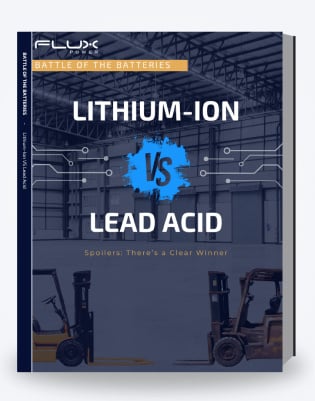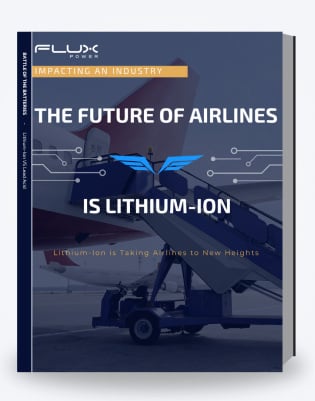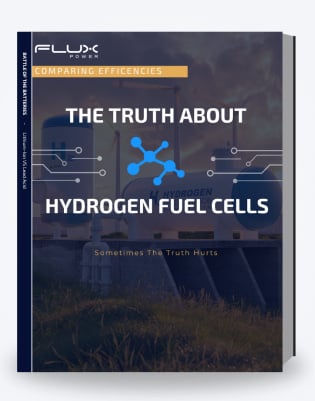What is Underwriter Laboratories (UL)?
Underwriters Laboratories (UL) is a global safety certification company that has been operating for over 100 years.
They are considered a worldwide leader in safety testing for a wide variety of products across many industries.
UL is included by the U.S. Occupational Safety and Health Administration (OSHA) on the list of Nationally Recognized Testing Laboratories.
Why is UL Listing important for lithium-ion batteries?
Generally, lithium-ion batteries are one of the safest types to use, but if they are damaged or contain defects, they can be a hazard for employees who need to operate material handling equipment.
When you are in the market for a new lithium-ion forklift battery supplier, UL safety certifications are a must-have. The meticulous testing and product requirements help ensure that you’re not taking a risk, and the certification process helps manufacturers determine their maintenance and care instructions as well.
In this blog, we caught up with our in-house UL expert, Tim Vaughan, Director of Engineering, to get a deeper dive into how these certifications work and what to look for when you’re on the hunt for a lithium-ion forklift battery.
What is the difference between UL Listed vs UL Recognized?
The two main types of UL marks you will see are UL Listed and UL Recognized. The main difference between the two is that UL Listed products are sold as a complete final product. While on the other hand, UL Recognized products are components of a whole and are not the full, final product.
A UL Listed product might be something like an appliance or a piece of equipment such as a lithium-ion battery. UL Recognized components are suitable for factory installation into equipment or systems. Once a UL Recognized component is installed into a system or piece of equipment it may then be evaluated by UL for a Listing.
A battery system that is UL Listed is then suitable to be applied by end users to a wide range of material handling truck models. A UL Listed battery confirms that it may be safely used by anyone who has material handling equipment.
Vaughan explains that, “It is critical that the battery system is UL Listed. If it is only UL Recognized, this means that it has not undergone the full suite of safety testing to obtain a Listing. Batteries that are only Recognized will need to undergo further testing by UL approved laboratories in order to ensure that they are safe for the specific installation being considered.”
Which UL certification should a forklift battery buyer look for?
When it comes to lithium-ion batteries, the UL Listed certifications will be to different standards depending on the nature of the forklift equipment.
- Class 1 and Class 2 forklifts should use batteries Listed to UL 2580
- Class 3 forklifts should use batteries Listed to either UL 2271 or UL 2580
- Battery Management Systems will be Listed to UL 1998 for BMS hardware, and UL 991 for firmware
Fun fact: Flux Power’s LiFT Packs were the first lithium-ion forklift battery packs listed to UL 2271.
What kind of tests do the batteries go through to get Listed?
Batteries made for industrial equipment must be able to withstand a certain level of abuse, and the more stable they are, the better.
For lithium-ion battery packs that are used in electric forklifts, UL performs simulated abuse conditions, as well as electrical, mechanical, and environmental testing.
To test how a battery reacts to conditions in these simulations, testers will:
- Take a voltage reading
- Measure the internal resistance
- Complete a full charge/discharge cycle to read the capacity
- Perform drop tests and use tests
The purpose of battery testing is to ensure that in the event of an accident, the battery system won’t present any hazardous effects to the forklift operator.
What is required to maintain a UL Listing?
In order to maintain a UL Listing, a UL field representative visits the factory at least four times per year to verify that products are following UL standards.
“This ensures that the systems being built are the same as the systems tested and Listed,” stated Vaughan. “This prevents manufacturers from substituting in sub-standard components that could introduce unanticipated failures and potential safety risks.”
The field representative inspects activities on the production line to ensure documented components and processes are being used. They can also perform field evaluations for products that might need to be checked in a factory and don’t have time to go into a lab for testing.
Are there different certifications for outside the United States?
There are a few independent organizations that serve the same purpose as UL serves. “UL is the organization Flux Power elects to work with because they are the most widely recognized certification organization in the US,” says Vaughan.
Other common marks include CE, CSA, and IEC. If lithium-ion batteries need to be shipped anywhere via air travel, they must have the UN/DOT 38.3 certification, in which they’re tested in altitude simulation, thermal, vibration, shock, short circuit, impact, overcharge and forced discharge.
Testing to certify UN 38.3 involves even more abusive and destructive testing, beyond that required for UL Listing. This certification makes sure that the battery system will not present a hazardous problem in different shipping and transportation situations.
Warehouse Safety is a Top Priority
As organizations continue to search for ways to maximize productivity by optimizing warehouse safety in the workplace, forklift batteries are going to play a huge role.
Lithium-ion batteries are considered the safest and best battery technology for forklifts, due to easier handling and no on-going maintenance requirements.
However, being aware of the testing and approval process behind UL certification standards will help you make the right choice of a forklift battery for your specific use.

